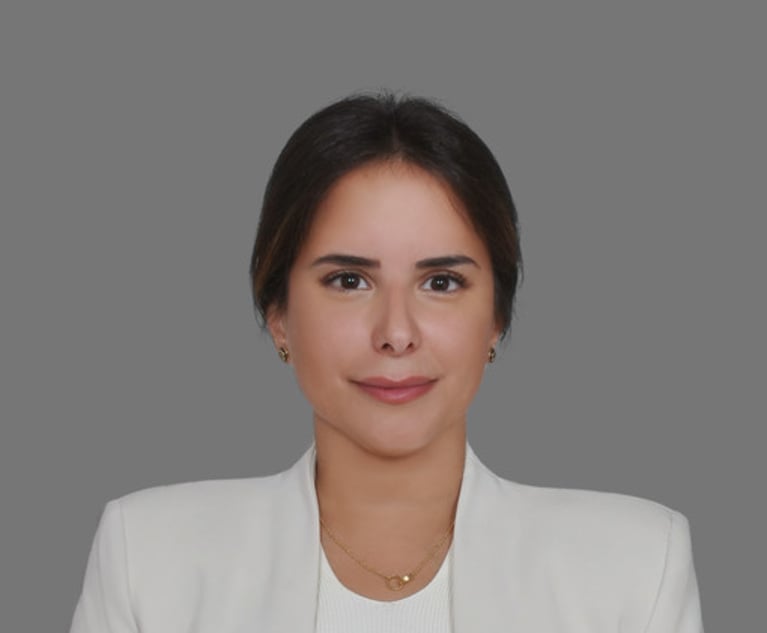Withers' Bet on Private Clients in California Is Powering US Growth
The firm did the same in Asia, which last year accounted for 25% of the firm's revenue. "Every year we erode globally into the idea that the London market is the most important market to the firm," said Michael Brophy, Los Angeles managing director at Withers.
June 14, 2022 at 08:00 AM
6 minute read
The original version of this story was published on The Recorder
 Withers' San Francisco office. Courtesy photo
Withers' San Francisco office. Courtesy photo Michael Brophy of Withers. Courtesy Photo
Michael Brophy of Withers. Courtesy Photo
Following Families 'Where They Need Us'
Withers launched in the U.S. in 2002, merging with New Haven tax boutique Bergman, Horowitz & Reynolds. Since then, the firm expanded with offices in Greenwich, Connecticut; New York; California; Boston; and, most recently, Texas. The firm broke into the Golden State with four offices in 2015, scooping up an eight-partner team from McKenna Long & Aldridge ahead of its merger with Dentons, and two lateral hires, including Brophy. "When Withers decided to become a global firm, it thought about where private wealth goes around the world. California had been on its radar for quite some time. When it brought in the entire private client team from McKenna, it made a splash right away," Brophy recalled. And while Brophy, a trusts and estates litigator, acknowledged that litigation is not necessarily the firm's bread and butter, he said it is often "a necessary evil" for wealthy families' estate planning needs. Thus, the opportunity to join the firm created a "perfect marriage." The firm's growth continues to be dictated by "where our families need us," according to Brophy, who noted that while Latin American families don't necessarily need the firm to have offices in the Southern Hemisphere, it is a must for wealthy families in California. "We needed to show our commitment to the families here, and that has allowed us to be successful in reaching wealthy families, some of whom had never heard of Withers before," he said.  Marsha Laine Dungog of Withers. Courtesy photo
Marsha Laine Dungog of Withers. Courtesy photo
Practice Innovations With an Eye Toward the Individual
In addition to building its real estate, employment, dispute resolution, tax and private client services in the state, the firm has also hired a number of entrepreneurial-minded partners that have launched their own practices. Since 2019, new practices have included ones catering to fashion tech, founders, cryptocurrency and digital assets, U.S.-Canada cross-border work and U.S. family law. For her part, Dungog overhauled her own Canada-U.S. practice. She had previously served as a director at Andersen and Canadian-based law firm Moodys, before joining Withers in 2020. When she arrived, she sought to reorient her practice to U.S.-based work. "When I told the firm I wanted to recalibrate my practice, they didn't say 'why?' They said, 'what do you need for us to support you?'" she recalled. "That sense of transparency, collaboration and collegiality was really important to me."  Doug Mandell of Withers. Courtesy photo
Doug Mandell of Withers. Courtesy photo
This content has been archived. It is available through our partners, LexisNexis® and Bloomberg Law.
To view this content, please continue to their sites.
Not a Lexis Subscriber?
Subscribe Now
Not a Bloomberg Law Subscriber?
Subscribe Now
NOT FOR REPRINT
© 2024 ALM Global, LLC, All Rights Reserved. Request academic re-use from www.copyright.com. All other uses, submit a request to [email protected]. For more information visit Asset & Logo Licensing.
Related Stories
View AllYou Might Like
View All

How I Made Riyadh Managing Partner: ‘Leadership is More Than Knowledge’ Says HSF's Joza AlRasheed


Clifford Chance Adds Two Goodwin Leveraged Finance Specialists as Partners in Paris
2 minute readLaw Firms Mentioned
Trending Stories
- 1Lawyers Drowning in Cases are Embracing AI Fastest—and Say It's Yielding Better Outcomes for Clients
- 2Judge Rises to Tifton Superior Court Bench
- 3'It's Like They Lynched You:' Law Professor's Discrimination Claim Reaches High Court
- 4New Teeth for Anti-SLAPP Statute? Absolute Immunity for Union Grievance Proceedings
- 5Freeman Mathis & Gary Taps Orlando for Third New Florida Office This Year
Who Got The Work
Michael G. Bongiorno, Andrew Scott Dulberg and Elizabeth E. Driscoll from Wilmer Cutler Pickering Hale and Dorr have stepped in to represent Symbotic Inc., an A.I.-enabled technology platform that focuses on increasing supply chain efficiency, and other defendants in a pending shareholder derivative lawsuit. The case, filed Oct. 2 in Massachusetts District Court by the Brown Law Firm on behalf of Stephen Austen, accuses certain officers and directors of misleading investors in regard to Symbotic's potential for margin growth by failing to disclose that the company was not equipped to timely deploy its systems or manage expenses through project delays. The case, assigned to U.S. District Judge Nathaniel M. Gorton, is 1:24-cv-12522, Austen v. Cohen et al.
Who Got The Work
Edmund Polubinski and Marie Killmond of Davis Polk & Wardwell have entered appearances for data platform software development company MongoDB and other defendants in a pending shareholder derivative lawsuit. The action, filed Oct. 7 in New York Southern District Court by the Brown Law Firm, accuses the company's directors and/or officers of falsely expressing confidence in the company’s restructuring of its sales incentive plan and downplaying the severity of decreases in its upfront commitments. The case is 1:24-cv-07594, Roy v. Ittycheria et al.
Who Got The Work
Amy O. Bruchs and Kurt F. Ellison of Michael Best & Friedrich have entered appearances for Epic Systems Corp. in a pending employment discrimination lawsuit. The suit was filed Sept. 7 in Wisconsin Western District Court by Levine Eisberner LLC and Siri & Glimstad on behalf of a project manager who claims that he was wrongfully terminated after applying for a religious exemption to the defendant's COVID-19 vaccine mandate. The case, assigned to U.S. Magistrate Judge Anita Marie Boor, is 3:24-cv-00630, Secker, Nathan v. Epic Systems Corporation.
Who Got The Work
David X. Sullivan, Thomas J. Finn and Gregory A. Hall from McCarter & English have entered appearances for Sunrun Installation Services in a pending civil rights lawsuit. The complaint was filed Sept. 4 in Connecticut District Court by attorney Robert M. Berke on behalf of former employee George Edward Steins, who was arrested and charged with employing an unregistered home improvement salesperson. The complaint alleges that had Sunrun informed the Connecticut Department of Consumer Protection that the plaintiff's employment had ended in 2017 and that he no longer held Sunrun's home improvement contractor license, he would not have been hit with charges, which were dismissed in May 2024. The case, assigned to U.S. District Judge Jeffrey A. Meyer, is 3:24-cv-01423, Steins v. Sunrun, Inc. et al.
Who Got The Work
Greenberg Traurig shareholder Joshua L. Raskin has entered an appearance for boohoo.com UK Ltd. in a pending patent infringement lawsuit. The suit, filed Sept. 3 in Texas Eastern District Court by Rozier Hardt McDonough on behalf of Alto Dynamics, asserts five patents related to an online shopping platform. The case, assigned to U.S. District Judge Rodney Gilstrap, is 2:24-cv-00719, Alto Dynamics, LLC v. boohoo.com UK Limited.
Featured Firms
Law Offices of Gary Martin Hays & Associates, P.C.
(470) 294-1674
Law Offices of Mark E. Salomone
(857) 444-6468
Smith & Hassler
(713) 739-1250









